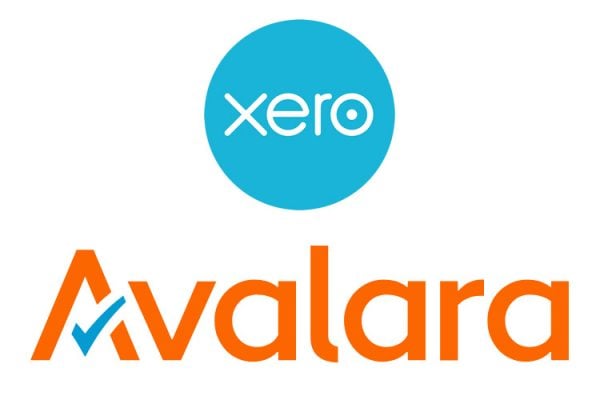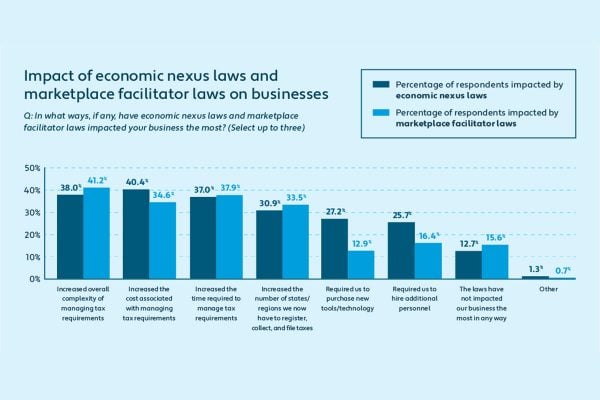Today, Sacha Wilson, Senior Director at Avalara discusses how retailers can capitalise on NFT demand while staying tax compliant.
The rise of emerging technology in finance and ecommerce, be that the metaverse or the ongoing craze surrounding cryptocurrency, has meant that tax regulators around the world have had to keep pace with monitoring, sanctioning, and updating compliance rules. One innovation in particular that has attracted the attention of millions of consumers and businesses alike, are Non-Fungible Tokens (NFTs).
NFTs – which can range from digital artwork to virtual fashion items – first entered the mainstream tech scene in early 2021 before rapidly amassing global sales in excess of £13 billion by the end of the same year. And with certain high profile digital artworks reaching £50m in auction, there are many who believe NFTs represent the next big opportunity. However, tax regulators have only recently shifted their focus to the tax obligations surrounding the purchasing and selling of these digital assets. In fact, it was only in June 2022 that Washington and Pennsylvania became the first states in the US to implement tax sales on NFTs.
Yet, this is very much a global phenomenon. As consumers continue to seek digital platforms to buy products and services, retail businesses have the opportunity to tap into this lucrative, global market. However, many retailers are still in the dark with how NFT sales tax actually works, and fears of non-compliance are holding back growth.
How are different countries approaching tax on NFTs?
Amidst the growing interest in owning NFTs, it is easy to overlook the potential tax implications surrounding NFT ownership, donorship, or inheritance. NFTs are ‘Non-fungible Tokens’ linked to unique and non-interchangeable digital assets that can be stored digitally and have value. They differ from bitcoin and other cryptocurrencies in that they relate to unique items, and the digital ledger serves to prove the uniqueness. In contrast, cryptocurrencies are fungible, and you can exchange one bitcoin for another as they are the same.
NFT sales need to be treated like any other transaction. For tax purposes, classifying NFTs is vital. Though it varies from country to country and state to state, the classification of NFTs can determine applicable tax rules, from income tax, capital gains tax or sales tax. NFTs would be subject to capital gains tax when sold or given away, as they are considered assets akin to physical artworks or collectibles. They would also be considered assets for other taxes, such as inheritance tax. Income tax may apply if you are trading NFTs, particularly if a large number of NFTs are bought and sold to make a profit.
Despite HMRC acknowledging that NFTs are classified as a separate entity to cryptocurrency, the UK currently has no specific legislation regarding NFTs, and guidance from HMRC only extends to crypto assets in general. HMRC has previously stated that cryptocurrencies are considered to be situated in the jurisdiction in which the owner is resident, and a similar treatment is expected for NFTs. Looking more broadly to the continent, the EU VAT committee has been asked to review the treatment of crypto-assets but has not yet come to a conclusion. Government guidance to businesses on how to stay tax compliant whilst tapping into this market is significantly lacking in substance.
If we look to the other side of the pond, the US Department of Revenue has already taken steps to outline four basic types of NFT transactions, as part of a wider effort to help provide sales tax guidance.
With little UK guidance on how to leverage NFTs whilst staying compliant, and the US beginning efforts in helping business preparedness, I’ve outlined a few key considerations below to help retailers on their journey to tapping into this market.
1) Standalone Digital Products
Whether the digital asset in question is artwork, a video clip, or even an autograph, sales tax generally applies to retail sales of digital products. Sales of stand-alone NFTs are taxable and this is already in effect in certain US states, such as Washington. It’s also worth noting that retailing business and occupation (B&O) tax also applies to stand-alone NFTs.
2) Stand-alone Good or Service
The object of the purchase here is a stand-alone good or service – and not the NFT itself. Retail sales of goods or services are generally subject to state-specific sales tax, so this transaction is typically taxable. In New Zealand for example, Goods and Sales Tax (GST) is applied to NFTs.
B&O tax can apply to stand-alone digital products.. Any stand-alone good or service not classified as a retail sale, is not typically taxed by a state sales tax. However, taxes such as B&O tax, use tax or another excise tax may still apply.
It is important to note that in certain countries in Europe and beyond, NFTs are not considered as goods due to their lack of physical form. However, the transfer of NFTs is subject to VAT – as is the case in Spain, Estonia, and Belgium – under the premise they’re an electronically supplied service.
3) Royalty Payments to NFT Creator
The sale of an NFT includes a royalty payment to the NFT creator, or to another party, who retains the right to royalties for future sales – including distribution of the NFT. Be aware that not every royalty payment is subject to sales tax, as each country – and even state – holds different tax regulations. In Washington, for example, royalty payments are not subject to state sales tax. Generally speaking, royalties B&O tax applies to gross income from royalties.
NFTs hold a real growth opportunity for retail businesses looking to increase their profitability, challenge themselves to new heights, and venture into a new customer base. Retailers who are able to move with emerging technology and roll with the tax complexities that come along with this new territory are far more likely to have an edge over competitors. That being said, both the UK and US tax regulators have a long way to go in offering these businesses the right level of support, guidance, and preparedness, to help them stay on the front foot.









